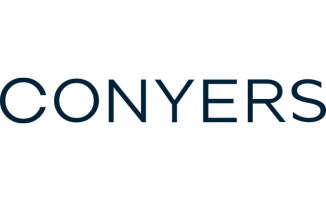The British Virgin Islands (BVI) is a particularly popular jurisdiction for incorporating joint venture vehicles. The principal statute governing the formation and operation of a BVI business company is the Business Companies Act 2004 (the BC Act). The BC Act is a modern and flexible companies statute.
Key Documentation
The principal corporate documents are the joint venture agreement (JVA) and the memorandum and articles of association of the BVI company (M&A). There are particular provisions of the JVA that must be in the M&A under BVI law. These provisions relate to: (i) the rights attaching to the authorised shares of the company; (ii) provisions in respect of company procedures such as notice and quorum requirements for shareholder meetings; (iii) the election of directors; and (iv) restrictions on the powers of the directors to carry on the business of the company (being items requiring super majority director approval or shareholder approval).
The M&A are a public document registered with the Registrar of Corporate Affairs of the British Virgin Islands. Sometimes shareholders’ agreements are incorporated by reference into the M&A. While the position is not free from doubt, the view exists that this reference is not effective and that the shareholders’ agreement would not be incorporated in the M&A as a consequence of such reference. Rather, to the extent that the shareholders’ agreement deals with matters that are governed by the M&A, then the provisions need to be expressly set out in the M&A.
It is important to avoid inconsistencies between the JVA and the M&A. Further, a JVA only binds the parties to the agreement, whereas the M&A binds all relevant parties.
Governing Law
The M&A will necessarily be governed by BVI law. Consequently, it is advised that the governing law of the JVA be the laws of the BVI to avoid the risk of having a decision in the foreign court on the JVA which contradicts the decision of the BVI courts.
Shares
Under BVI law, consideration for the issue of shares can be in any form and shares may be issued with or without par value. It is not uncommon for at least one party to a JVA to contribute non-cash consideration to the BVI company. Section 48 of the BC Act requires the directors to value this non-cash consideration.
The BC Act provides for different share classes. It is recommended that separate shares classes are utilised when seeking to cater for matters such as the right to appoint directors and also to avoid naming shareholders in the M&A.
Directors’ Duties
All power to manage a BVI company is allocated to the directors, unless otherwise allocated to the shareholders pursuant to the BC Act or the M&A. Any purported attempt in the M&A to allocate such power to a third party (and not as a sub-delegation of power by the directors or shareholders) is likely unenforceable.
Section 120(4) of the BC Act allows a director of a company that is carrying out a joint venture between the shareholders, to, when exercising powers or performing duties as a director in connection with carrying out a joint venture, if expressly permitted to do so by the M&A, act in a manner which he believes is in the best interests of a shareholder or shareholders, even though it may not be in the best interests of the company.
Distributions
Under the BC Act, the payment of distributions is subject to a statutory solvency test encompassing both cash-flow solvency and balance sheet solvency. Parties should seek legal advice if the JV provides that payment of distributions to shareholders will be restricted as this may be an improper fetter on the statutory discretion of the directors to declare and pay dividends.
Breach of Joint Venture Agreement
It could be a term of a deal that shares may be forfeited as a consequence of a breach of the JVA. Forfeiture is not a known BVI corporate law concept other than in connection with failing to pay up less than fully paid shares under the BC Act. Alternatively, the shares of the defaulting party could be redeemable at the option of the company for a nominal amount or an option (along with a power of attorney) available to the non-defaulting shareholder(s) to purchase the defaulting shareholder’s shares for a nominal amount in the event of a breach of the agreement. BVI law advice should be taken to ensure that any such forfeiture does not constitute a penalty.
Why Choose the BVI
The BVI offers neutrality, as none of the joint venture parties will hold particular influence. Tax neutrality is another benefit: there is no corporation, capital gains, wealth, or any other tax applicable to a business company; and they are specifically exempted from income tax.
Rule of law is often a consideration for parties seeking to ensure that the law will be disinterestedly and consistently enforced. The BVI’s legal system is founded on English law and provides a neutral and secure legal environment. The Judicial Committee of the Privy Council in the United Kingdom is the highest court for any review.
For more information, please contact:

Nicholas Kuria, counsel, BVI office, Conyers
T: +1 284 852 1129












